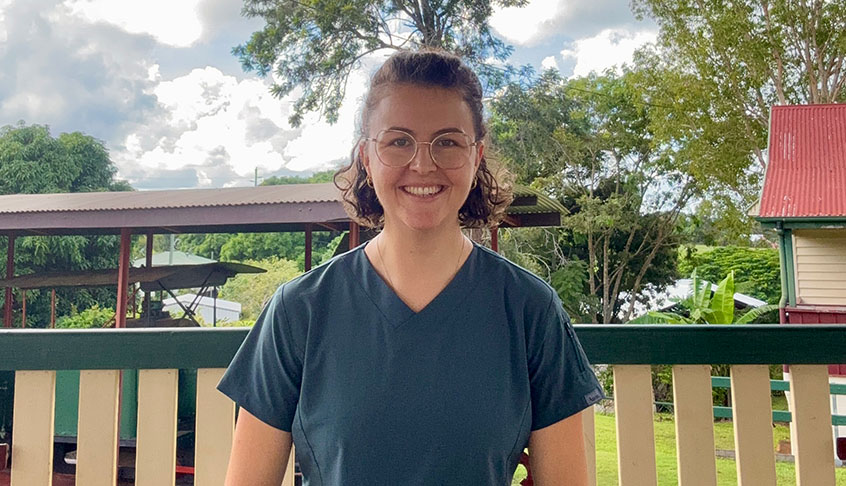
My first John Flynn Prevocational Doctor Program (JFPDP) rotation was an ideal first ever rotation as a doctor! The gradual progression of responsibility that my supervisors provided, and support given was fantastic. I also had the opportunity to learn how to spread my wings and make some decisions in a safe environment before being thrown into the hospital world. My second JFPDP rotation has been very different, as it has been in a hospital setting. It has not been without its challenges, but it is through these challenges that I have learnt a lot and grown as a doctor.
If you’ve seen one town, you’ve seen one town
The placements have been quite different, and I’ve really valued the opportunity to experience both.
On my first rotation, I worked in a regional town (Bargara), primarily focusing on general practice. There was a high volume of skin cancer work, which was a subspecialisation of 2 of my key supervisors. This rotation was well supervised, providing ample support and guidance.
In contrast, my second placement was in a small rural hospital in Childers, where I worked across the emergency department and inpatient ward. This rotation required more autonomy.
Exploring the region
The southern Great Barrier Reef is at our doorstep, so any opportunity to go snorkelling or scuba diving is one my favourite ways to recharge. I also love lacing up my runners and exploring the rolling hills of farmland around the region.
The JFPDP experience and a RG career
My JFPDP placements provided fantastic early experiences where I have ‘tested the waters’ for what it’s like to be a GP and RG. The experience is vastly different as a student compared to a doctor, and it’s solidified that being an RG is the right career choice for me.
Both placements have provided unique learning opportunities that I may not have gained from a single term and given my rotations have all been within the same HHS, I have become familiar with the community over time.
There is another QRGP colleague doing the same rotation, which has been extremely helpful. We are at the same stage of training and having them to bounce ideas off and debrief with as needed has been fantastic.
Accessing education offerings while on JFP rotation
I have attended the QRGP’s weekly Statewide Rural Education Prevocational Program (StREPP) sessions – they are a fantastic addition to the rotation!
The JFPDP experience and GP training years
Having early exposure to work as a GP and all that comes with that, including the diversity of presentations, the myriad of billing codes, and trying not to get too behind, was invaluable. As a junior doctor you are exposed to the hospital system, but few get to experience what it’s like to be a GP. Even if I wasn’t pursuing a career in rural generalism, I believe a GP rotation would be incredibly beneficial simply to understand the complexities of the job and how to collaborate and communicate with GPs. No matter what speciality you end up in, you will interact with GPs frequently.
Pursuing a rural generalist career
My first JFPDP experience was entirely GP, and it confirmed that I enjoy primary care. Providing preventative healthcare and being a constant in the whirlwind of multiple specialists for complex patients was very rewarding.
My second JFPDP experience was in a small rural hospital where I very much worked like a rural generalist between ward and emergency (which had a good portion of GP presentations too). This again confirmed that the diversity of work that comes with rural generalism keeps me motivated and excited for work, and that pursuing a career as a RG is the right choice for me.
Having already completed 2 rotations, if I were to do a third, I would love to see a completely different part of Queensland.
Advice for a rewarding experience
Just go for it. You will be challenged, but through that you will learn and grow as a doctor. The early exposure to GP is invaluable, regardless of whether you want to be GP/RG or sub-specialist in a metro area. Everyone will interact with GPs and rural patients throughout their career, and your future patients will benefit from you having a true understanding of working rurally and/or as a GP.